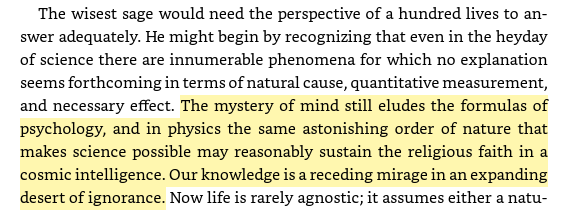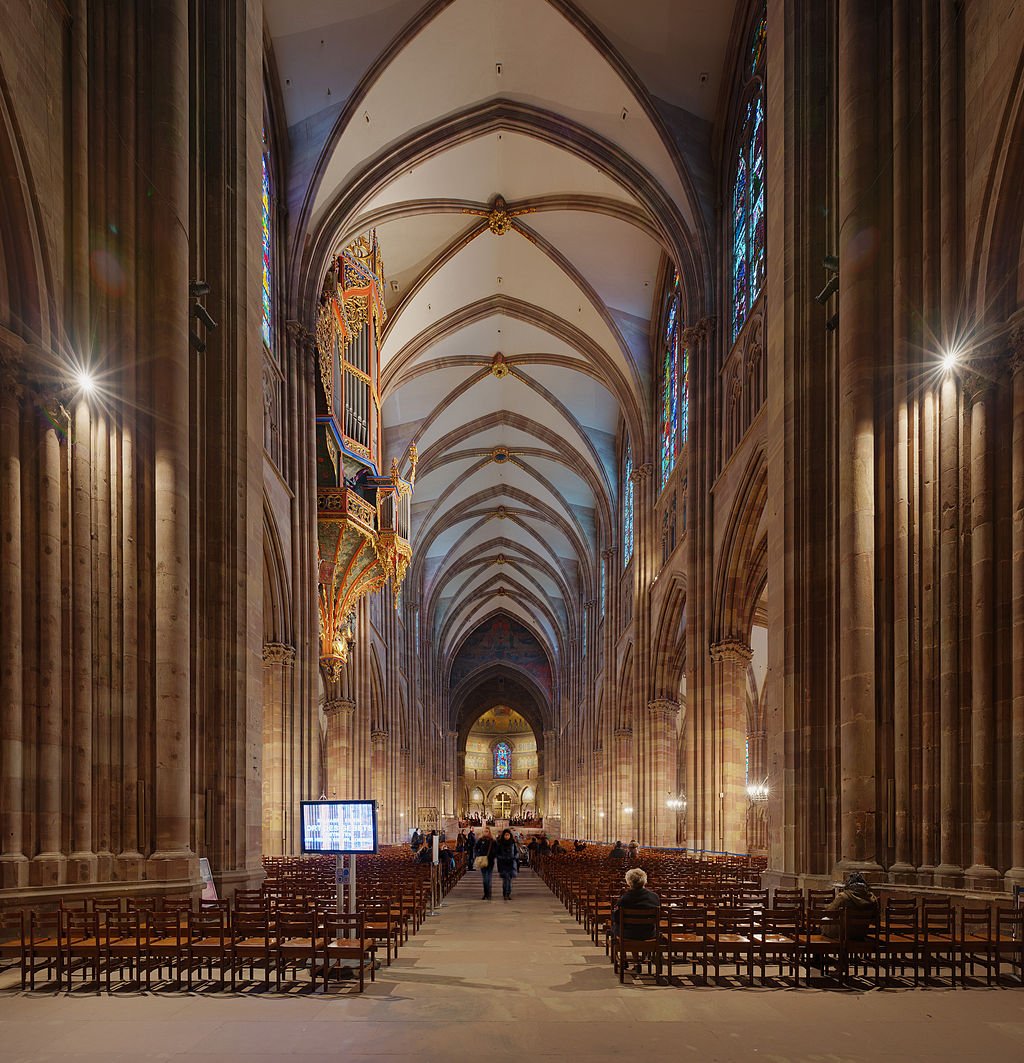@Ada_Palmer's 5-part series on Machiavelli was an absolute joy to dive into.
The ability to synthesize such a complex character & time period, all while entertaining the reader, is to be applauded.
Here are just a couple of my favorite passages ✌️
exurbe.com/machiavelli-s-…
The ability to synthesize such a complex character & time period, all while entertaining the reader, is to be applauded.
Here are just a couple of my favorite passages ✌️
exurbe.com/machiavelli-s-…
1/ "Yes, I am going to talk about Machiavelli, and I hope you see here that the fundamental mistake most introductions to Machiavelli make is that they start by talking about Machiavelli. Context is everything."
@context_ing knows a thing or two about context 😀
@context_ing knows a thing or two about context 😀
2/ "...Machiavelli’s job when he worked in that little office in the Palazzo Vecchio:
Goal: Prevent Florence from being conquered by any of 10+ different incredibly enormous foreign powers.
Resources: 100 bags of gold, 4 sheep, 1 wood, lots of books and a bust of Caesar.
Go!"
Goal: Prevent Florence from being conquered by any of 10+ different incredibly enormous foreign powers.
Resources: 100 bags of gold, 4 sheep, 1 wood, lots of books and a bust of Caesar.
Go!"
3/ "The Prince is a manual for staying in power. Machiavelli writes it for the Medici, hoping it will secure him a job so he can get back where he should be, working for Florence’s safety from the inside. But it also explains his conclusions from all this dark experience."
4/ The birth of modern political science
"History should be studied for what it tells us about the background &origins of our present, & past events should be analyzed as a set of examples, to be compared to present circumstances to help plan actions &predict their consequences"
"History should be studied for what it tells us about the background &origins of our present, & past events should be analyzed as a set of examples, to be compared to present circumstances to help plan actions &predict their consequences"

5/ Most adored addendum I've ever read 😇The transparency, thoughtfulness, & introspection all readers should aim to convey in their writing.
Q: “Holy cow, why isn’t more history taught like this?”
A: The simplification bell curve
exurbe.com/machiavelli-pa…
Q: “Holy cow, why isn’t more history taught like this?”
A: The simplification bell curve
exurbe.com/machiavelli-pa…

6/ What makes this a bell curve?
"In sum, this style of history requires a lot of historical fluency on one end, and a lot of trust on the other. That, in (not very) short is my theory about why more history is not taught like this."
This whole section is spot on 🙏
"In sum, this style of history requires a lot of historical fluency on one end, and a lot of trust on the other. That, in (not very) short is my theory about why more history is not taught like this."
This whole section is spot on 🙏

7/ Virtue ethics, deontology, & fictional characters
"(1) that good guys tend to be more dominated by Virtue Ethics, and bad guys by other motives, and (2) the author or scriptwriter...tends to assume the viewer will judge the characters based primarily on Virtue Ethics."
"(1) that good guys tend to be more dominated by Virtue Ethics, and bad guys by other motives, and (2) the author or scriptwriter...tends to assume the viewer will judge the characters based primarily on Virtue Ethics."
8/ @Ada_Palmer does it again with the rise of the Borgias🙌
"“Yes, he really did go around dressed all in black wearing a mask and killing people for fun.” Thus Cesare Borgia was conceived."
Oh he was also , "a very very, very very, very, very bad pope"
exurbe.com/machilavelli-i…
"“Yes, he really did go around dressed all in black wearing a mask and killing people for fun.” Thus Cesare Borgia was conceived."
Oh he was also , "a very very, very very, very, very bad pope"
exurbe.com/machilavelli-i…
9/ Really, that bad?
"Instead of the usual graft and simony, they tried to permanently carve out a personal Borgia duchy in the middle of Italy, and when that was going well, they tried to turn the papacy into a hereditary monarchy."
& importantly, "they very nearly succeeded"!
"Instead of the usual graft and simony, they tried to permanently carve out a personal Borgia duchy in the middle of Italy, and when that was going well, they tried to turn the papacy into a hereditary monarchy."
& importantly, "they very nearly succeeded"!

10/ The blossoming of a hereditary monarchy
"Cardinals and other powerful figures who opposed the Borgias kept dying–sometimes of symptoms suggesting poison, sometimes of bloody assassinations, sometimes of obviously trumped up court sentences, ..."
"Cardinals and other powerful figures who opposed the Borgias kept dying–sometimes of symptoms suggesting poison, sometimes of bloody assassinations, sometimes of obviously trumped up court sentences, ..."
11/ The Borgia "Kingdom"
"A new blotch appeared on the European map. Let me repeat: a new blotch appeared on the European map, a kingdom out of nowhere, carved out in the heart of Italy, a kingdom which no longer belonged to the pope, or any Italian house, but to the Borgias."
"A new blotch appeared on the European map. Let me repeat: a new blotch appeared on the European map, a kingdom out of nowhere, carved out in the heart of Italy, a kingdom which no longer belonged to the pope, or any Italian house, but to the Borgias."

12/ &, Machiavelli?🧐
"Good morning, Mr. Machiavelli. Your mission, should you choose to accept it, is to prevent Cesare Borgia from conquering Florence....report to us about his character & tactics, & develop a strategy to keep him from adding Tuscany to his expanding kingdom."
"Good morning, Mr. Machiavelli. Your mission, should you choose to accept it, is to prevent Cesare Borgia from conquering Florence....report to us about his character & tactics, & develop a strategy to keep him from adding Tuscany to his expanding kingdom."

13/ "Lovable" Cesare?😐
Gov'ts purpose = keep the peace
"Cesare did that very, very well. How? If someone was caught causing strife in the streets, that person would be executed in the most horrifically graphic possible way & his corpse strung up in public. Consequence: peace."
Gov'ts purpose = keep the peace
"Cesare did that very, very well. How? If someone was caught causing strife in the streets, that person would be executed in the most horrifically graphic possible way & his corpse strung up in public. Consequence: peace."
14/ Julius II, the Warrior Pope - Guiliano della Rovere
"His is not a willing patience but that silent, vindictive patience which sets in like a sickness when spirit and ambition have been trapped in the stables waiting for the starter’s gun too long."
exurbe.com/machiavelli-iv…
"His is not a willing patience but that silent, vindictive patience which sets in like a sickness when spirit and ambition have been trapped in the stables waiting for the starter’s gun too long."
exurbe.com/machiavelli-iv…
15/ New Handbook of Princes & the ultimate survival of the beloved Florence
"“In order to be virtuous, the people must still be alive,” (paraphrase)...If fear will discourage conspiracy, use fear."
"“In order to be virtuous, the people must still be alive,” (paraphrase)...If fear will discourage conspiracy, use fear."

16/ Machiavelli's enduring legacy
"What is a modern person?
One reasonable answer is “someone who uses consequentialism and political science.” There may be (and are) other differences, but this certainly is one, and Machiavelli is its father."
"What is a modern person?
One reasonable answer is “someone who uses consequentialism and political science.” There may be (and are) other differences, but this certainly is one, and Machiavelli is its father."

17/ In @Ada_Palmer's final installment, she untangles the complex web of history to find an answer to the question, was Machiavelli an atheist? 🧐
"The stakes are high, and personal. This makes it hard for historians to be calm about it."
"The stakes are high, and personal. This makes it hard for historians to be calm about it."
18/ Finding that thread from which to pull
"Religious tolerance and the presence of atheism as a coequal participant in religious discourse in our own day is part of what makes us radically different from our predecessors."
"Religious tolerance and the presence of atheism as a coequal participant in religious discourse in our own day is part of what makes us radically different from our predecessors."

19/ So, why single out Machiavelli?
1. Very modern & contemporary in thought
2. Long called an atheist by others
AND
3. The"habitat" of available ideas related to atheism was flourishing during his time.
1. Very modern & contemporary in thought
2. Long called an atheist by others
AND
3. The"habitat" of available ideas related to atheism was flourishing during his time.

20/ Nature, not God, was beginning to offer alternative explanations to life's most pressing questions.
...and who was reading these texts? Machiavelli.
...and who was reading these texts? Machiavelli.

21/ Machiavelli, the humorous😇
Recruiting a preacher for Lent (a high honor), his letter begins:
"Magnificent one, my most respected superior. I was sitting on the toilet when your messenger arrived, and just at that moment I was mulling over the absurdities of this world;"
Recruiting a preacher for Lent (a high honor), his letter begins:
"Magnificent one, my most respected superior. I was sitting on the toilet when your messenger arrived, and just at that moment I was mulling over the absurdities of this world;"

22/ Evidence so far:
✅Smells like an atheist
✅Manifests orthodoxy
✅Modern ethics & political attitudes
✅Charismatic figure w/ anticlerical tints
Atheist? Who knows 🙃
✅Smells like an atheist
✅Manifests orthodoxy
✅Modern ethics & political attitudes
✅Charismatic figure w/ anticlerical tints
Atheist? Who knows 🙃
23/ "There isn’t anybody else we know of from Machiavelli’s century who really should be there in the imaginary salon where we revisit the Enlightenment debates that made this modern era secular the way it is. Just Machiavelli. That’s why we can’t stop asking."
🙏 @Ada_Palmer
🙏 @Ada_Palmer
• • •
Missing some Tweet in this thread? You can try to
force a refresh






















